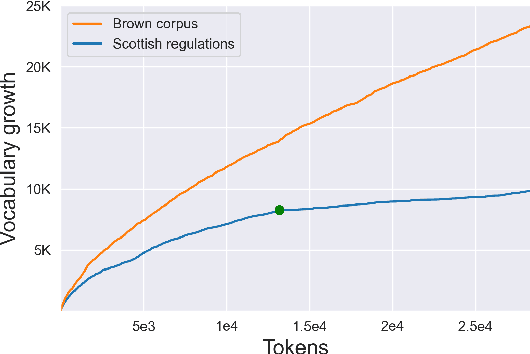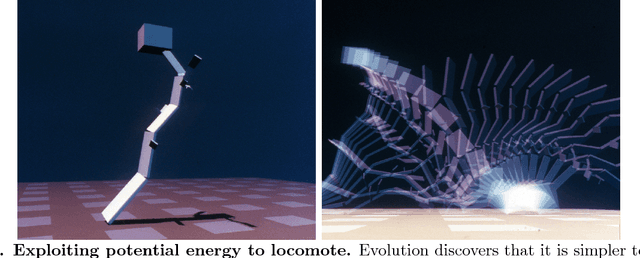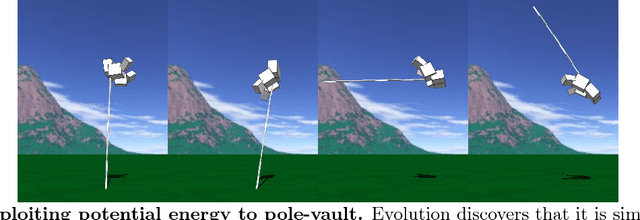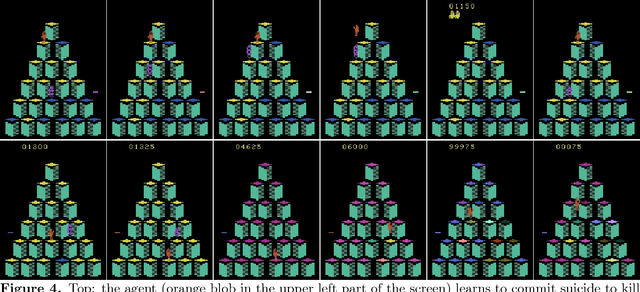Richard Watson
SPaR.txt, a cheap Shallow Parsing approach for Regulatory texts
Oct 04, 2021



Abstract:Automated Compliance Checking (ACC) systems aim to semantically parse building regulations to a set of rules. However, semantic parsing is known to be hard and requires large amounts of training data. The complexity of creating such training data has led to research that focuses on small sub-tasks, such as shallow parsing or the extraction of a limited subset of rules. This study introduces a shallow parsing task for which training data is relatively cheap to create, with the aim of learning a lexicon for ACC. We annotate a small domain-specific dataset of 200 sentences, SPaR.txt, and train a sequence tagger that achieves 79,93 F1-score on the test set. We then show through manual evaluation that the model identifies most (89,84%) defined terms in a set of building regulation documents, and that both contiguous and discontiguous Multi-Word Expressions (MWE) are discovered with reasonable accuracy (70,3%).
The Surprising Creativity of Digital Evolution: A Collection of Anecdotes from the Evolutionary Computation and Artificial Life Research Communities
Aug 14, 2018



Abstract:Biological evolution provides a creative fount of complex and subtle adaptations, often surprising the scientists who discover them. However, because evolution is an algorithmic process that transcends the substrate in which it occurs, evolution's creativity is not limited to nature. Indeed, many researchers in the field of digital evolution have observed their evolving algorithms and organisms subverting their intentions, exposing unrecognized bugs in their code, producing unexpected adaptations, or exhibiting outcomes uncannily convergent with ones in nature. Such stories routinely reveal creativity by evolution in these digital worlds, but they rarely fit into the standard scientific narrative. Instead they are often treated as mere obstacles to be overcome, rather than results that warrant study in their own right. The stories themselves are traded among researchers through oral tradition, but that mode of information transmission is inefficient and prone to error and outright loss. Moreover, the fact that these stories tend to be shared only among practitioners means that many natural scientists do not realize how interesting and lifelike digital organisms are and how natural their evolution can be. To our knowledge, no collection of such anecdotes has been published before. This paper is the crowd-sourced product of researchers in the fields of artificial life and evolutionary computation who have provided first-hand accounts of such cases. It thus serves as a written, fact-checked collection of scientifically important and even entertaining stories. In doing so we also present here substantial evidence that the existence and importance of evolutionary surprises extends beyond the natural world, and may indeed be a universal property of all complex evolving systems.
Incremental construction of minimal acyclic finite-state automata
Jul 06, 2000Abstract:In this paper, we describe a new method for constructing minimal, deterministic, acyclic finite-state automata from a set of strings. Traditional methods consist of two phases: the first to construct a trie, the second one to minimize it. Our approach is to construct a minimal automaton in a single phase by adding new strings one by one and minimizing the resulting automaton on-the-fly. We present a general algorithm as well as a specialization that relies upon the lexicographical ordering of the input strings.
* 14 pages, 7 figures
A Splitting Set Theorem for Epistemic Specifications
Mar 08, 2000Abstract:Over the past decade a considerable amount of research has been done to expand logic programming languages to handle incomplete information. One such language is the language of epistemic specifications. As is usual with logic programming languages, the problem of answering queries is intractable in the general case. For extended disjunctive logic programs, an idea that has proven useful in simplifying the investigation of answer sets is the use of splitting sets. In this paper we will present an extended definition of splitting sets that will be applicable to epistemic specifications. Furthermore, an extension of the splitting set theorem will be presented. Also, a characterization of stratified epistemic specifications will be given in terms of splitting sets. This characterization leads us to an algorithmic method of computing world views of a subclass of epistemic logic programs.
 Add to Chrome
Add to Chrome Add to Firefox
Add to Firefox Add to Edge
Add to Edge